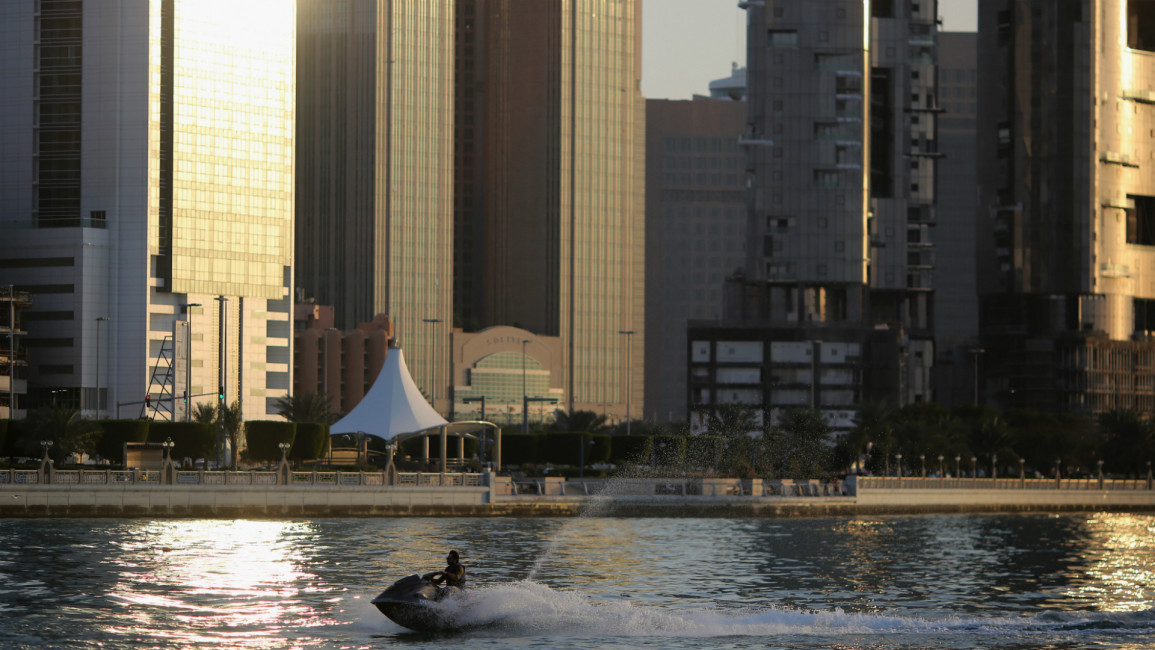Rights group criticises EU visa-waiver for UAE citizens
Rights group criticises EU visa-waiver for UAE citizens
International Campaign for Freedom in the UAE says decision to allow Emiratis visa-free travel in Schengen area sends wrong message to an undemocratic country that represses internal calls for reform.
2 min read
The UAE's wealthy image hides a poor human rights record, rights groups say [Getty]
A pro-democracy group has criticised the EU's decision to award the UAE visa-free travel rights in the Schengen area, saying the Emirati government continues to ignore calls for political reform.
The International Campaign for Freedom in the UAE said the "diplomatic coup" for the UAE ignored "numerous concerns raised about the country's human rights abuses".
The London-based group cited the imprisonment of three sisters, Asmaa, Mariam and Alyaziyah al-Suwaidi, who disappeared in mid-February after being summoned by the police.
The sisters had been campaigning for the release of their brother, Dr Issa al-Suwaidi, who was among 94 people jailed in 2013 for sedition in the "UAE 94" case for petitioning the government for elections and reform.
All three sisters were summoned to an Abu Dhabi police station after Asmaa posted on Twitter that she missed her brother. Their mother received an anonymous call stating that her daughters were "fine", but nothing since.
Rightgs group, Amnesty International said the sisters were at risk of torture.
The ICFUAE told al-Araby al-Jadeed that the UAE confirmed last week that the sisters were in custody.
Arshad said she feared that the visa-waiver could send the "wrong impression" to the UAE that its domestic policies do not affect its international reputation.
"The European Union can't be selective when it comes to democracy and human rights," she said. "Calls are coming from Emiratis themselves."
In 2012, in response to the UAE 94 trial, the EU urged the UAE to respect human rights and democracy. However, rights groups says the situation has deteriorated since that time.
The UAE passed 'cyber-crimes' law in 2012, which Human Rights Watch described as a "significant step backward when it comes to free speech".
Additionally, a new counter-terrorism law was passed in 2014, which was described as "deeply flawed" due to its expansive definition of terrorism which would criminalise groups who operate legally in the US and Europe.
Since 2011, a number of Egyptians and Libyans have been accused of ties to the Muslim Brotherhood and arrested. The Brotherhood was also branded a "terrorist" organisation.
The International Campaign for Freedom in the UAE said the "diplomatic coup" for the UAE ignored "numerous concerns raised about the country's human rights abuses".
The London-based group cited the imprisonment of three sisters, Asmaa, Mariam and Alyaziyah al-Suwaidi, who disappeared in mid-February after being summoned by the police.
The sisters had been campaigning for the release of their brother, Dr Issa al-Suwaidi, who was among 94 people jailed in 2013 for sedition in the "UAE 94" case for petitioning the government for elections and reform.
All three sisters were summoned to an Abu Dhabi police station after Asmaa posted on Twitter that she missed her brother. Their mother received an anonymous call stating that her daughters were "fine", but nothing since.
Rightgs group, Amnesty International said the sisters were at risk of torture.
The ICFUAE told al-Araby al-Jadeed that the UAE confirmed last week that the sisters were in custody.
| The EU can't be selective when it comes to democracy and human rights. - Shazia Arshad, ICFUAE |
Arshad said she feared that the visa-waiver could send the "wrong impression" to the UAE that its domestic policies do not affect its international reputation.
"The European Union can't be selective when it comes to democracy and human rights," she said. "Calls are coming from Emiratis themselves."
In 2012, in response to the UAE 94 trial, the EU urged the UAE to respect human rights and democracy. However, rights groups says the situation has deteriorated since that time.
The UAE passed 'cyber-crimes' law in 2012, which Human Rights Watch described as a "significant step backward when it comes to free speech".
Additionally, a new counter-terrorism law was passed in 2014, which was described as "deeply flawed" due to its expansive definition of terrorism which would criminalise groups who operate legally in the US and Europe.
Since 2011, a number of Egyptians and Libyans have been accused of ties to the Muslim Brotherhood and arrested. The Brotherhood was also branded a "terrorist" organisation.



